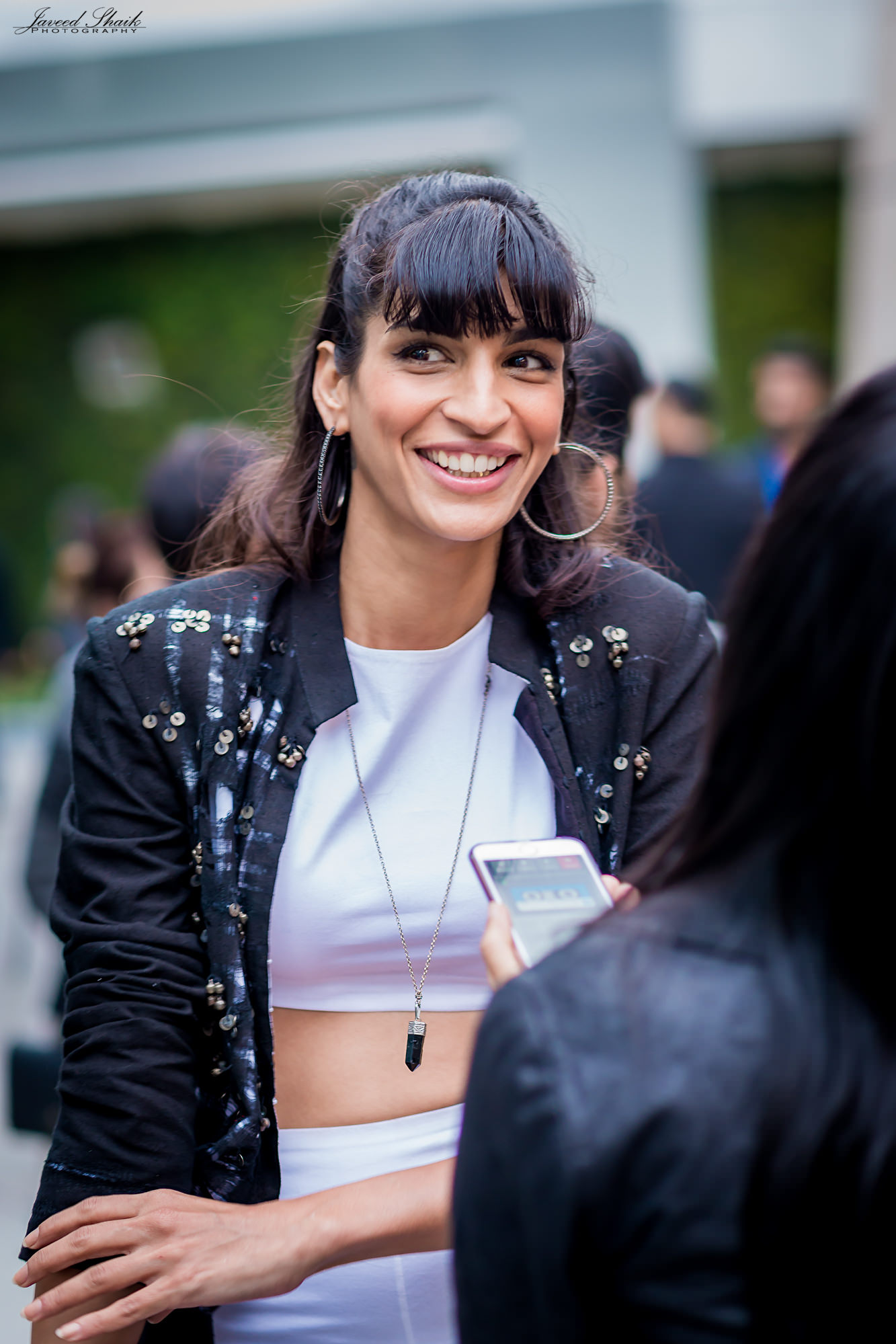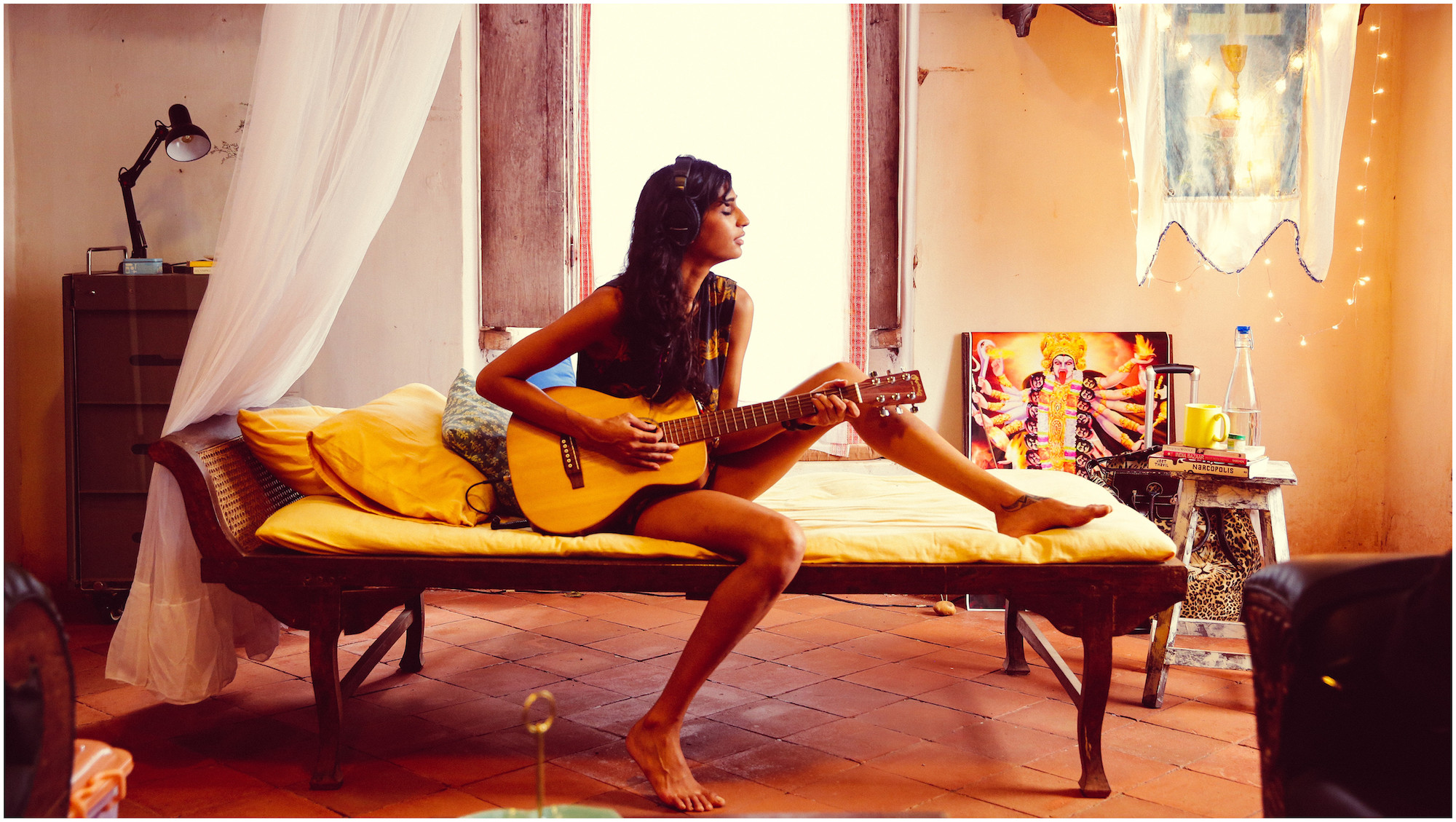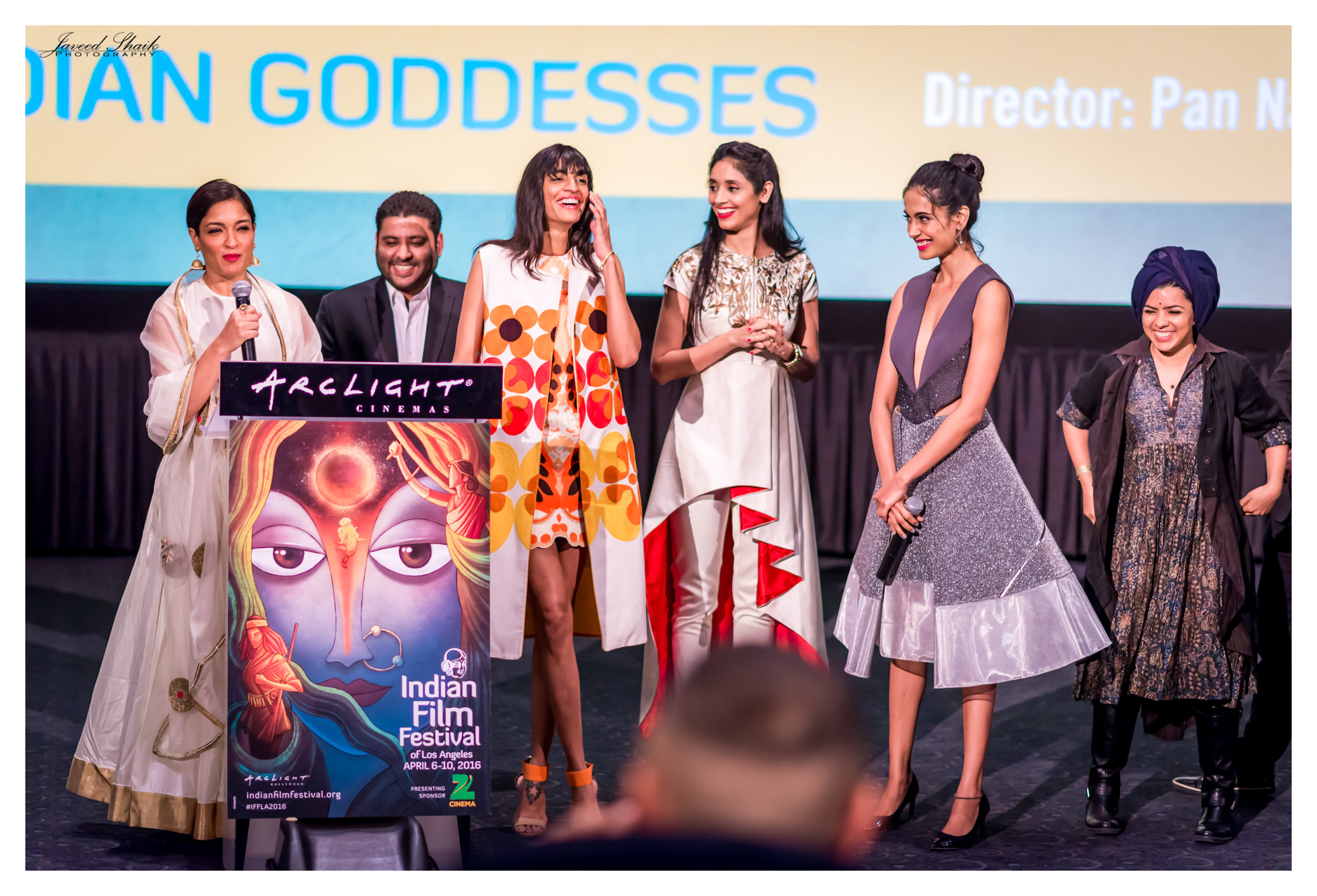
If you’re from the channel [V]-gobbling generation of the late 90s, you couldn’t have missed the pop-music sensation called Viva! – the glorious girl-band formed through a nationwide talent hunt in 2002. And if they were the Spice Girls of India, Anushka Manchanda, in my mind, was definitely the Mel B of the group! It was pleasing to see her return as a spirited young musician in ‘Angry Indian Goddesses’ – the opening night film at the Indian Film Festival of Los Angeles (IFFLA), earlier this month.
Directed by Pan Nalin, the film follows a group of women who arrive at their friend Frieda’s home in Goa, for a vacation. They’re in for a surprise when Frieda (Sarah Jane Dias) announces that the real purpose of her invitation is her wedding. However, she won’t spill the beans on who the groom is. The girlfriends play along, setting off an unplanned bachelorette-like chirpy atmosphere. Over time, we learn about all of their deep-seated fears and secret aspirations. Whether it’s Frieda’s frustration with shooting fairness cream commercials, Pam’s resentment of becoming little else than a trophy wife, or Su’s constant struggle with meeting the ‘do-it-all’ expectations of her career and motherhood –they represent the inner battles that any woman can relate to. In some ways, the movie reminded me of the magnificent Lebanese film ‘Caramel’ (Sukkar Banat, 2007), directed by Nadine Labaki, where she delicately explores the hopes and dreams of women in Lebanon through her characters, who all work together in a beauty salon.
As the ambitious vocalist ‘Madhureeta’ in Angry Indian Goddesses, Manchanda takes to her role like fish to water. She has a vivacious screen presence as she portrays a determined yet disillusioned artist, who is tired of rejection and doing gigs that don’t satisfy her creativity. We had the wonderful opportunity to speak to her about how she prepared for her part and why she loved being around her feisty co-stars.

What was it like to work with and all-female star cast? Was it a blast?
You know, people always assume that women, especially actresses, don’t get along, and they are very competitive and catty. It’s not like that at all. We did two weeks of intense workshops to get to know each other and I think our casting director had a huge part to play. We did exercises where we were holding each other’s hands, looking into each other’s eyes, meditating together. We were doing trust building exercises, and you can really see that in the film. It was lovely to be around them because they’re all smart, intelligent and strong women with ‘opinions’, which is very stimulating. I also got so many beauty tips! Whatever they were eating, they were putting on their face. Any fruit -they would put on their face. Papaya – on their face (laughs). So there was a lot of that girly stuff as well. It was also nice because no one was pulling each other down. We were all pushing each other forward and standing up for each other and that was really amazing. It was a very warm set, so it was very nurturing.
“It was lovely to be around them because they’re all smart, intelligent and strong women with ‘opinions’, which is very stimulating.”
You all had very distinct characters. Your role was a natural fit for you. But did you have a choice of which of the characters you wanted to play? Or did Pan approach you with the specific role?
We actually had a big hand in writing our characters, which is why there’s a lot of similarity between our characters and us. And that’s why it looks so real. They kept us in our characters for a very long time. We were told to do exercises like -imagine your character is 16 years old and she is writing a letter to her father. Now write that letter. Imagine you’re in school. Now draw the route from your house to your school. What is it like? What do you pass by? Write down your own personal character traits and your character’s traits. So it was really intense. Of course, they knew that they wanted me to play a musician. If I said I didn’t want to, I don’t think that would have worked. But I did have a hand in what kind of personality traits Madhureeta has.

Did any of that ring true for you? The kind of issues that are raised in the film – you’re going through the problems that any struggling artist would go through.
Absolutely. But everyone has these problems and that’s why the film is so relatable. Everyone has to deal with – maybe something that Sarah (Frieda) was facing, maybe something that Pavleen’s character (Pam) was facing. I think that the issues that we were dealing with are so real…you know? (The film does deal with a lot of different issues that women, mainly in India, face a lot.) We thought that as well – that it’s women in India who have to deal with this, but it’s not true. When we were in Toronto and Rome, there were women coming up to us after the film, telling us that they feel the same way. There was a journalist in Rome who told Sandhya that your character (Su) portrays what I have to deal with. I have this job but I also have my family, I have my child and I have to balance both of these things. A lot of artists may be doing commercial work because they need to pay the bills, but they really want to do something else. A housewife could be dealing with a lot of family pressure. These are things that women all over the world deal with. In that sense, it’s very relatable.
“When we were in Toronto and Rome, there were women coming up to us after the film, telling us that they feel the same way.”
‘Angry Indian Goddesses’ official trailer (TIFF 2015)
What do you enjoy more – the singing or the acting?
Honestly, I’ve been told that this is not usually how films are made. This was very intense and we were really involved in this process. And for me, creatively it was really satisfying. Whether it’s singing or acting, I enjoy the creative process. There are some singing jobs that I’ve done that I have not enjoyed! Of course I can’t compare anything to what I feel on stage. It’s that rush, you know. But I really enjoyed this particular kind of filmmaking.
“The important thing is to leave people feeling a strong emotion. I think that, that is the kind of art that makes a difference.”
What did you personally think of the ending of the film? It takes such a dramatic turn after playing like a buddy film all along.
We had a big chat about this with Pan. Not chat – more like a heated debate or argument. We said “No no no, you can’t do this!”. He said that it has to happen. And he, of course is the director, so we trusted him. And after watching the film, I realized that this punch-in-the-gut was needed. It couldn’t have ended any other way. Even the vigilante justice at the end, it was important to go there. Nalin said that “This is what we’re saying. If you push a woman so much and so hard, this is what’s bound to happen.” The important thing is to leave people feeling a strong emotion. And I think that, that is the kind of art that makes a difference.
‘Angry Indian Goddesses’ won the People’s Choice Award at the Rome Film Festival, 2015 and was the runner-up for the People’s Choice Award at the Toronto International Film Festival, 2015. It was released in India in December 2015 to much critical acclaim.















